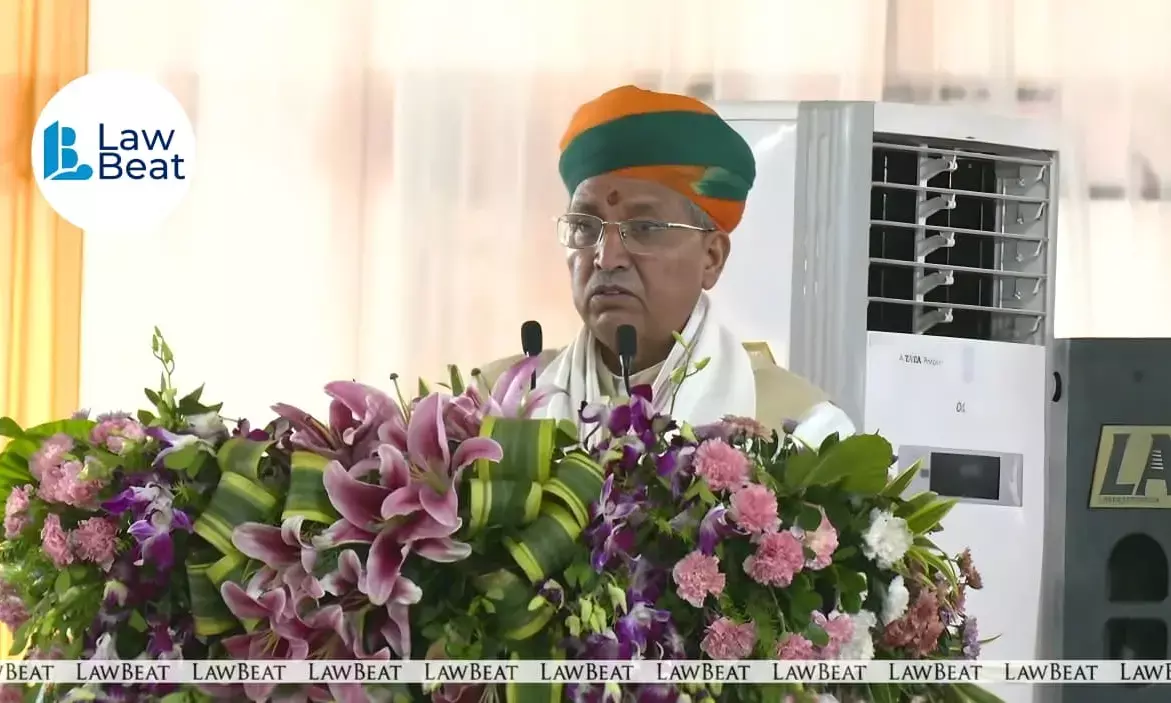Union Law Minister Backs Demand for CAT Bench in Jharkhand at High Court’s Silver Jubilee

Union Law Minister Arjun Ram Meghwal addressing the Jharkhand High Court’s silver jubilee event in Ranchi, supporting the call for a CAT bench and stressing future-ready judicial reforms
Union Minister of State for Law and Justice Arjun Ram Meghwal on Saturday endorsed the long-pending demand for establishing a Central Administrative Tribunal bench in Jharkhand.
He was speaking at the silver jubilee celebrations of the Jharkhand High Court in Ranchi, an event attended by Supreme Court judge Justice Surya Kant, several Apex Court and high court judges, chief justices from multiple states and other dignitaries.
Meghwal said he had been informed that Jharkhand lacked a CAT bench, calling the demand “genuine” and emphasizing the need for immediate consideration. He remarked that in the 25 years since its formation, the Jharkhand High Court has built a reputation for accessible, impartial and transparent justice delivery.
Looking ahead, the minister urged the judiciary to prepare a comprehensive roadmap for the next 25 years, especially as courts increasingly interface with rapid technological shifts. He highlighted the ongoing evolution in artificial intelligence, robotics, 3D printing, machine learning and blockchain, noting that the justice system must adapt to both the opportunities and challenges these developments bring.
“We have entered an AI-enabled era. The golden jubilee of the high court should reflect even greater advancements,” Meghwal said.
At the event, Justice Surya Kant has called upon High Courts to envision their institutional growth much like a modern hospital which designs its emergency services, with structures that are equipped to respond swiftly, decisively, and with precision at the very moment a crisis arises. "In the same way that an emergency ward cannot afford delay, our Courts too must aspire to that level of preparedness, efficiency, and coordinated response. This means strengthening technological capacity, streamlining procedures, building specialised expertise, and ensuring that judicial processes can adapt instantly to emerging situations. Only with such foresight can the Judiciary continue to deliver timely and effective remedies, rising to every challenge with the speed and clarity that a constitutional democracy demands. These are not mere administrative ideas; they are the next step in the evolution of access to justice", Justice Kant said.
Justice Kant also spoke on the importance of High Courts and the constitutional commitment to rule of law, democracy, and fundamental rights. He has said the High Courts form the backbone of justice and shape the daily experience of constitutional ideals for millions. "The existence of High Courts, mandated by Article 214, is not merely an extra rung on the ladder to the Supreme Court. Their deeper significance lies in Article 226, which grants them the authority not only to enforce Fundamental Rights; as the Supreme Court does under Article 32, but also to protect legal rights of every kind. The presence of a High Court in every State, whether old or new, therefore, ensures that justice is truly local, immediate, and within reach", the judge has said.
He highlighted how broad jurisdictional powers and proximity to the people, makes High Courts vital engines for legal development and social reform. "...since each High Court evolves in conversation with its region’s distinct culture and challenges, justice acquires a local heartbeat. When law intertwines with the lived realities of the people, it ceases to be abstract—it becomes human, inclusive, and transformative. Here lies the irreplaceable strength of the High Courts within our federal democracy.", the judge said.
